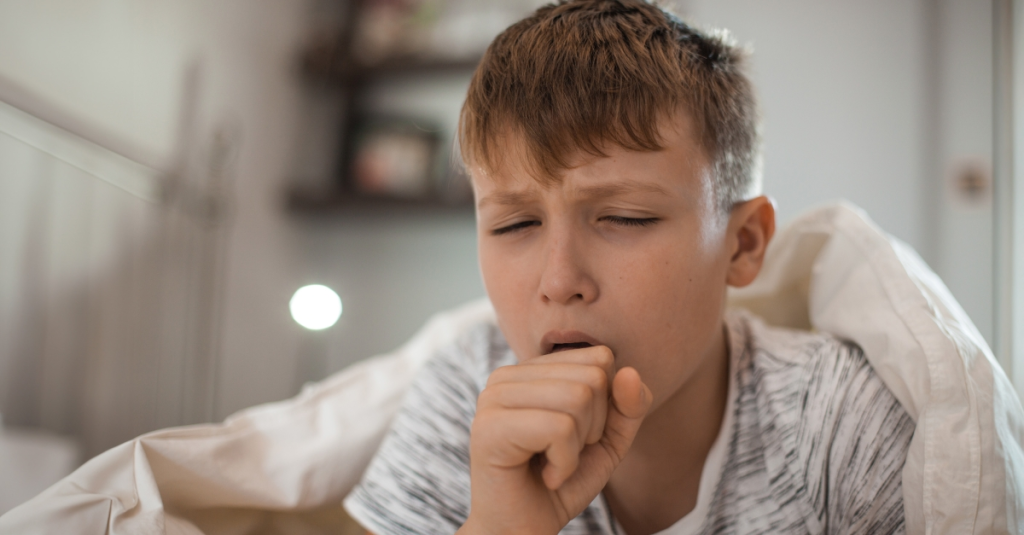It’s that time of year when illnesses tend to spread, but this year, there’s a unique health concern. While many of us didn’t pay much attention to disease statistics before the COVID-19 pandemic, we are now more aware of how easily illnesses can spread.
One disease currently making headlines is whooping cough (also known as pertussis), and it’s causing a lot of concern in Illinois, as cases reach the highest levels in the state since 2012.
Illinois Faces Surge in Whooping Cough Cases

Illinois reports from the Illinois Department of Public Health (IDPH) reveal that the state is experiencing a significant rise in whooping cough cases. So far, in 2024, over 1,900 cases of the disease have been confirmed, with October alone accounting for 408 cases. These numbers represent the highest number of whooping cough cases in Illinois since 2012, and the problem isn’t limited to just one area.
In fact, a Chicago high school reported multiple cases of whooping cough within just one week earlier this month. This highlights just how contagious the disease can be and how quickly it can spread in close-knit environments like schools.
A Nationwide Problem
The increase in whooping cough cases isn’t confined to Illinois. It’s part of a larger trend seen across the United States. According to the Centers for Disease Control and Prevention (CDC), the number of reported pertussis cases in December 2024 was six times higher than the same time last year. This surge in cases has raised alarms among public health officials who are working hard to prevent further spread.
What Is Whooping Cough?
Whooping cough is a highly contagious respiratory disease caused by the bacteria Bordetella pertussis. It’s known for its distinct symptoms, including severe coughing spells that make it hard to breathe. The name “whooping cough” comes from the sound people make when they try to catch their breath after a coughing fit.
The disease primarily affects infants and young children, but it can also strike teenagers and adults, especially if they haven’t been vaccinated in a while.
Symptoms to Watch For
The symptoms of whooping cough can often be mistaken for a common cold or flu at first. They usually start with:
- A runny or stuffy nose
- Mild cough
- Low-grade fever
As the disease progresses, the cough becomes more severe and can lead to difficulty breathing. In severe cases, the coughing fits can be so intense that they cause vomiting or exhaustion.
One of the most concerning aspects of whooping cough is that it’s very contagious, and it can spread quickly in places where people are in close contact with one another, like schools, daycare centers, and hospitals.
Can You Still Get Whooping Cough If You’ve Been Vaccinated?

Many people are under the impression that getting the whooping cough vaccine (DTaP for children and Tdap for adults) will completely protect them from the disease. While the vaccine is very effective at reducing the risk of severe illness, it doesn’t guarantee total immunity.
The CDC reports that even people who have been vaccinated can still get whooping cough, but their symptoms are usually milder and less likely to cause serious complications.
For those who do contract the disease, there are several steps to help speed up recovery and prevent the spread of the illness:
- Taking antibiotics as prescribed by a doctor
- Getting plenty of rest
- Drinking fluids to stay hydrated
- Using a humidifier to help with coughing and congestion
- Covering your cough and washing your hands frequently to reduce transmission
The Importance of Vaccination
Vaccination is the best way to protect both yourself and those around you from whooping cough. In Illinois, children are required to receive the whooping cough vaccine in order to attend school, and adults are strongly encouraged to get vaccinated if they haven’t already.
Public health officials have issued multiple health alerts in Illinois about the rise in whooping cough cases, urging both parents and adults to make sure their vaccinations are up to date. This is especially important for pregnant women and infants, as whooping cough can be fatal in young children if they don’t receive the necessary treatment in time.
Protecting Your Family and Community
To prevent the spread of whooping cough, it’s crucial to stay informed and take the right precautions. Vaccination remains the most effective method to prevent the disease, but practicing good hygiene, such as covering your cough and washing your hands regularly, can also make a big difference.
Health officials are hopeful that by raising awareness and promoting vaccination, they can reduce the number of whooping cough cases in the coming months. Everyone plays a role in helping to keep the community safe and healthy.
Note: Every piece of content is rigorously reviewed by our team of experienced writers and editors to ensure its accuracy. Our writers use credible sources and adhere to strict fact-checking protocols to verify all claims and data before publication. If an error is identified, we promptly correct it and strive for transparency in all updates.







Leave a Comment